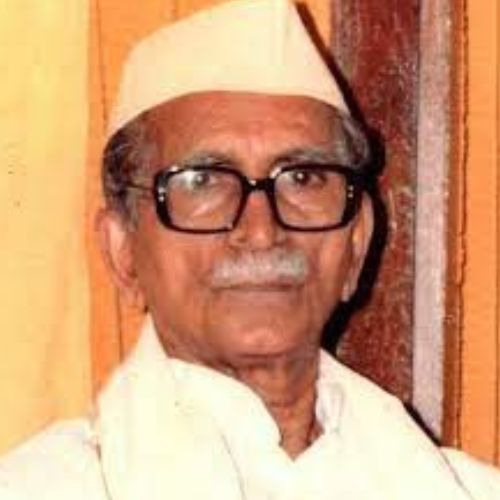Early Life:
Nayakulu G. Ranga was born on 7 November 1900 in Guntur District in present-day Andhra Pradesh. He went to England in 1920 for higher education, and graduated with a B.Litt in Economics from the University of Oxford. While at Oxford, he became inspired by Marxist ideology.
Ranga returned to India and began his teaching career in 1927 as a professor of economics at Pachayappa College, Madras. He served as the economic advisor to the Madras Government from 1929-30.
In 1930, he quit his teaching career to devote his time to politics. Ranga joined the All India Congress Committee in that year, and won election to the Central Legislative Assembly. He was also active in social work, and was an active participant in the movement to abolish the zamindari system in the Andhra region. In 1935, Ranga founded the All India Kisan Congress in support of farmers rights, and was later elected as its President. Later in 1947, he served as President of the Andhra Congress Committee.
An avid writer who was also interested in journalism, Ranga served as a reporter for the newspaper Bombay Chronicle and Andhra Patrika.
Role in India’s Independence Movement:
Ranga was a follower of Mahatma Gandhi, and the latter was impressed by his political acumen and knowledge of economics. Gandhi tasked him with persuading political leaders to adopt universal adult franchise.
As a member of the Central Legislative Assembly, Ranga publicly opposed the Simon Commission Report and the First Round Table Conference, which occurred without Gandhi’s inputs. He continuously advocated for complete independence, rather than negotiations for limited self-governance.
In 1940, Ranga was arrested for his support of Subhash Chandra Bose’s revolutionary Forward Bloc.
Contribution to Constitution Making:
Ranga was elected to the Constituent Assembly from Madras on a Congress party ticket. He made several interventions in the Assembly on debates such as on decentralization of power, emergency powers, bicameralism, and creation of an Andhra Province.
Later Contributions:
Ranga left the Congress party in 1951 primarily due to his differences with Nehru on land reforms. He went on to found the Kisan Mazdoor Praja Party with J.B. Kripalani and Tanguturi Prakasam, although he soon left due to differences with Prakasam. He then founded the Krishikar Lok Party, which merged the Praja Party and the Congress party to form the United Congress, which came to power in Madras Presidency.
In 1957, Ranga was elected to the Lok Sabha. He went on serve six times on tickets of various parties.
Ranga opposed Nehru’s proposal for cooperative farming, and organised a conference for the Krishna District Kisan Sabha in 1957 to organize farmers against this proposal. These differences led him to leave the United Congress alliance and co-found the Swatantra Party in 1959. As a member of the Swatantra Party, Ranga gave a historic speech opposing the 17th Amendment.
Ranga eventually returned to the Congress in 1972 after the Swatantra Party was defeated in the 1971 elections.
He passed away on 9th June 1995. For his lifelong support of farmers, Ranga is celebrated as the Father of the Indian Kisan Movement.
Key Writings:
Ranga was an avid writer and academic. Some of his notable works include Fight for Freedom, The Peasants and Cooperative Farming, The Economics of Handloom, and two volumes of Economic Organization of Indian Villages. He also wrote prolifically about the oppressed classes in Telugu.
- Ranga spoke in favour of decentralization of powers to the panchayats to enhance the decision-making ability of farmers and peasants. He was against the accumulation of power by the Centre as it was antithetical to Gandhian Principles.
- He concurred with the suspension of fundamental rights during emergency for the greater good of the nation.
- Ranga expressed his disapproval towards bicameral legislature in provinces.
- He advocated for the creation of a separate Andhra Province to the Assembly for a better administration of the region.

